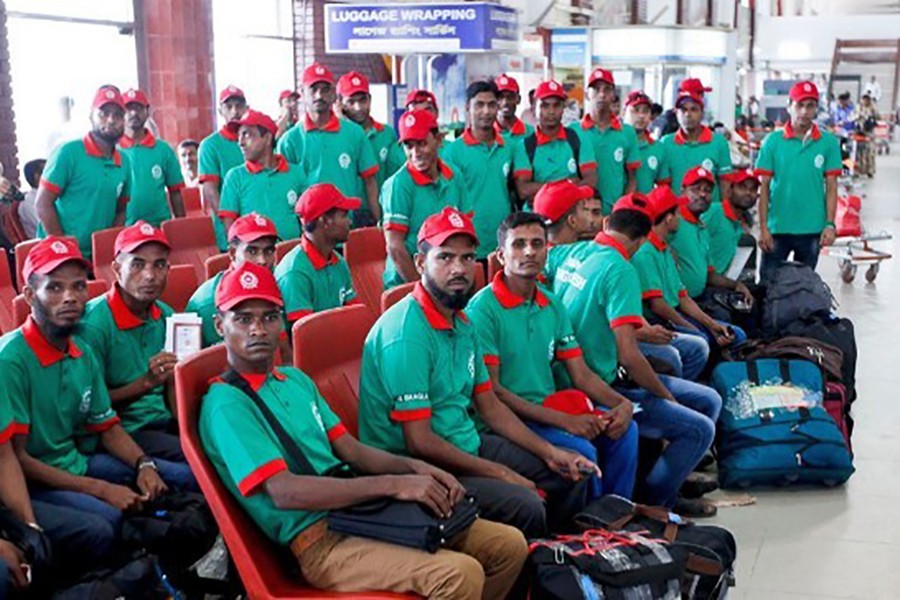
Published :
Updated :

An official move to send skilled workers abroad has hardly produced any visible outcome as the number of outbound skilled workforce remained static in 2018.
The rate of skilled workers was about 43 per cent both in 2017 and 2018, showed statistics released by the Bureau of Manpower Employment and Training (BMET) on Wednesday.
A total of 317,528 out of 734,181 overseas workers were skilled in 2018. It was 434,344 out of 1008525 in 2017.
Other categories, including professional and semi-skilled ones, also remained almost stagnant.
The BMET figures showed that the rate of professional outbound workers was 0.44 per cent in 2017 and 0.36 per cent in 2018.
Semi-skilled workers' rates were about 15 per cent in 2017 and 16 per cent in 2018.
According to experts, there is no alternative to skilled workers as their demand is increasing globally.
Skilled workers send more remittances and also help to reduce workplace exploitation, they said.
The experts also criticised the government's improper policy to develop demand-based and country-specific skilled manpower.
Workers get training in 45 trades in 71 technical training centres (TTCs) in the country.
When contacted, a senior BMET official said the government has a plan to send 50 per cent skilled workers abroad by 2021 and cent percent by 2030.
It has made multiple initiatives to achieve the target.
They have made a deal with City & Guilds, a UK-based global skills development organisation, which is providing training in at least six TTCs.
Shakirul Islam, chairman of Ovibashi Karmi Unnayan Programme, said it is necessary to outline a proper policy to enhance the number of skilled and professional outbound manpower.
Maximum workers are now going abroad with individual visas or so-called free visas. But it is very tough to identify their categories, he added.
They usually are not employed in the companies which are mentioned in their employment visas. So, it should be stopped and bring more company visas, he said.
Mr Islam stressed the need for necessary upgradation of the TTCs and inclusion of vocational education general curriculum to increase skilled migration abroad.
Since 1976, Bangladesh has sent about 12 million workers abroad. Of them, the majority went to the Middle-Eastern countries.
arafat_ara@hotmail.com


 For all latest news, follow The Financial Express Google News channel.
For all latest news, follow The Financial Express Google News channel.